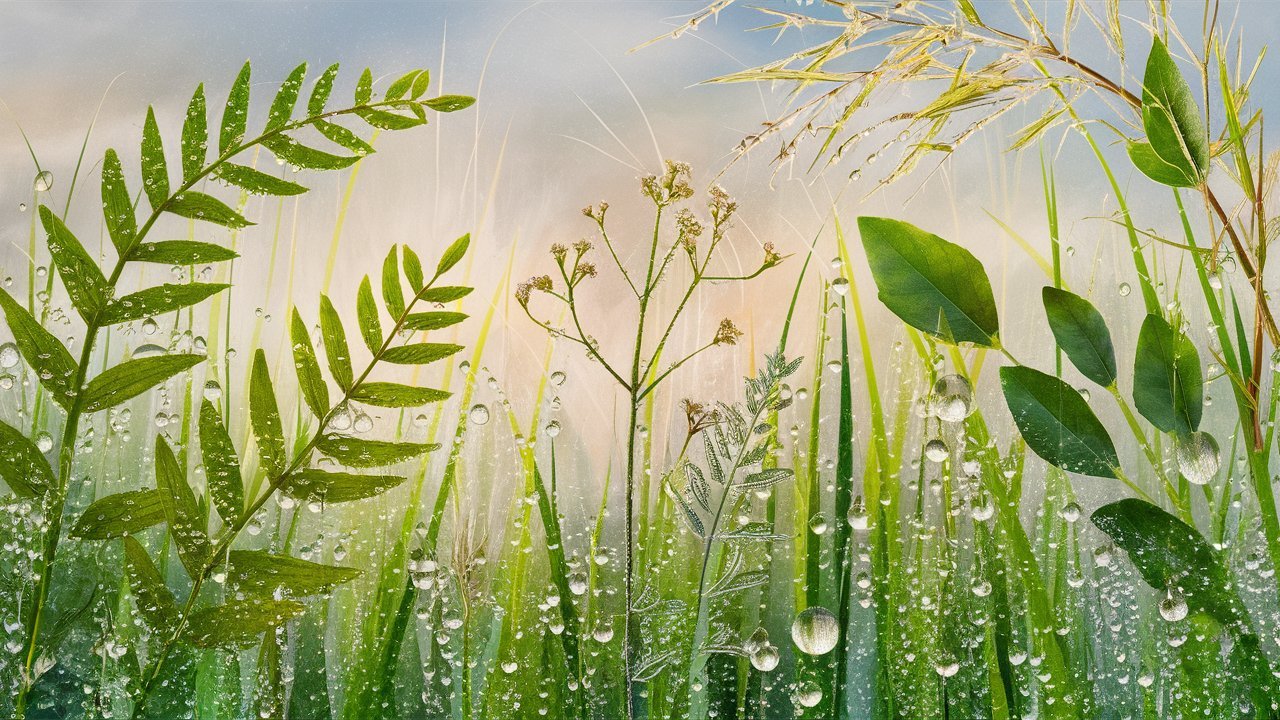Discover simple ways to protect your plants from dew damage. Learn easy-to-follow tips to keep your garden healthy and strong, even when it’s damp outside. Perfect for both new and experienced gardeners!
Gardening is a fun hobby that many people enjoy. But sometimes, water on plant leaves can cause problems. This water, called dew, can harm plants if we’re not careful. Don’t worry, though! This article will teach you how to keep your plants safe from dew damage. We’ll use easy words and give you helpful tips that anyone can use.
Why Dew Can Be Bad for Plants

Dew might look pretty on leaves, but it can cause issues:
It Can Make Plants Sick
When leaves stay wet for too long, it’s easier for harmful tiny organisms to grow. These can make your plants sick.
It Can Burn Leaves
Sometimes, water droplets act like tiny magnifying glasses. When the sun shines on them, they can burn the leaves.
It Can Make Leaves Heavy
Too much water on leaves can make them heavy. This might cause them to bend or break.
How to Know If Dew Is Hurting Your Plants
Look for these signs:
- Brown or yellow spots on leaves
- Leaves that look burned
- Moldy areas on the plant
- Drooping or bent stems
If you see these, your plants might be suffering from dew damage.
Easy Ways to Protect Your Plants
Now, let’s learn how to keep your plants safe:
1. Water at the Right Time
When you water your plants matters a lot:
- Water in the morning: This gives leaves time to dry before night.
- Avoid evening watering: This can leave plants wet overnight.
- Water the soil, not the leaves: This keeps leaves dry.
Learn more about watering techniques from the Cooperative Extension
2. Give Plants Space
Plants need room to breathe:
- Don’t plant too close together: This lets air move between plants.
- Trim plants when needed: Remove extra leaves or branches to improve air flow.
- Use supports: For tall plants, use stakes or cages to keep them off the ground.
3. Choose the Right Spot
Where you put your plants can help:
- Find sunny spots: More sun helps dry leaves faster.
- Use raised beds: These can have better drainage.
- Consider covered areas: A porch or overhang can protect from dew.
4. Use Protective Coverings
Sometimes, plants need extra help:
- Try row covers: These are light fabrics that go over plants.
- Use clear plastic shelters: These can protect from rain and dew.
- Make mini greenhouses: You can use clear plastic containers for small plants.
Find out more about plant covers from the University of Minnesota Extension
5. Pick Strong Plants
Some plants handle dew better:
- Choose native plants: These are used to your local weather.
- Look for “disease-resistant” labels: These plants are stronger against problems.
- Ask at garden centers: They can suggest good plants for your area.
6. Keep Your Garden Clean
A clean garden is a healthy garden:
- Remove dead leaves: These can hold water and spread disease.
- Clean up fallen fruit: This stops pests that like moisture.
- Use clean tools: Wash your gardening tools to avoid spreading problems.
7. Improve Your Soil
Good soil helps plants stay healthy:
- Add compost: This makes soil drain better.
- Use mulch: It can help control moisture around plants.
- Test your soil: This tells you if it needs anything special.
Discover soil improvement tips from the USDA
8. Be Ready for Bad Weather
Sometimes, you need to act fast:
- Watch the weather: If heavy dew is expected, be prepared.
- Have covers ready: Keep plant covers nearby for quick use.
- Make a plan: Know which plants need the most help when it’s damp.
Special Tips for Different Plants
Not all plants are the same. Here are tips for specific types:
For Vegetable Gardens
- Use trellises for vines like cucumbers and tomatoes.
- Plant in rows facing the direction of usual winds.
- Consider drip irrigation to water without wetting leaves.
For Flower Beds
- Group plants with similar water needs together.
- Use pebbles or gravel around plants to improve drainage.
- Choose flowers that don’t mind getting wet, like marigolds or petunias.
For Potted Plants
- Move pots to protected areas when dew is heavy.
- Use pots with good drainage holes.
- Lift pots off the ground with plant stands or bricks.
When to Ask for Help
Sometimes, you might need expert advice:
- If many plants look sick
- When you’ve tried everything and nothing works
- If you’re not sure what’s wrong
Don’t be afraid to ask at a garden center or call your local extension office. They’re there to help!
Wrapping Up
Taking care of plants doesn’t have to be hard. By following these simple tips, you can protect your plants from dew damage. Remember, the key is to keep leaves dry and give plants what they need to stay strong. With a little care, your garden can be healthy and beautiful, even when it’s damp outside.
Happy gardening!
For more gardening tips and plant care guides, visit gardenersschool.com